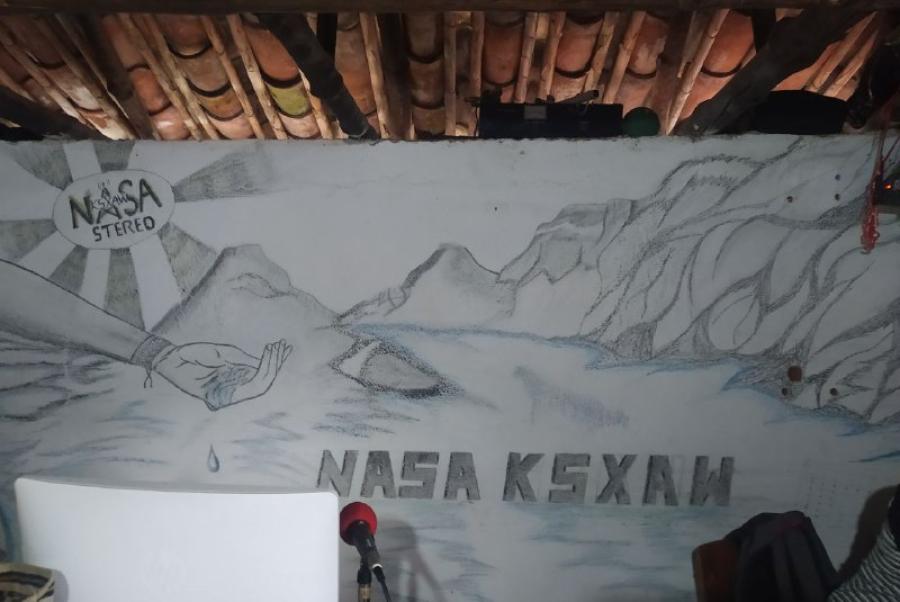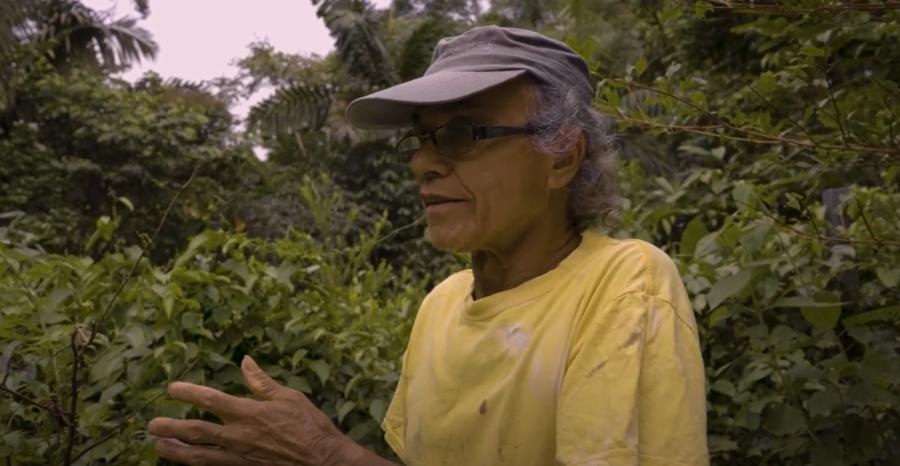I am the governor, maximum authority figure, of an Inga-Santiago community of upper Putumayo.
The aerial spray has affected the entire area of upper Putumayo. Our tomatoes, beans, and our banana plants died, and our traditional medicine plant sources ran out completely. At first we didn’t know why all our plants were dying, but then we learned that this was a result of the herbicide spraying in lower Putumayo, and that the effects were spreading to us. This is why all of our plants died. Also, we, the people of the Valley of Sibundoy, started noticing strange diseases, and we didn’t know what they were caused by. We noticed common symptoms among the members of the community such as headaches, fevers, and lesions all over our bodies. We tried using our traditional herbal baths, but they just didn’t work to cure these ailments. We are also experiencing terrible problems in the Valley of Sibundoy, because many displaced indigenous families come to our community, and we have no way at all of helping them. They need and request refuge and land. This makes us very worried, because we have no resources. I request that organizations help the Indians and especially the elderly, because with the next round of aerial spraying, surely everything that we have will be gone.
Speaking from my family’s experience alone, we have had 25 families arrive seeking shelter, many with small children. This is what I am working for, to try to give them even a half of a hectare so that they can have a place to live.
The people who have come to my house seeking refuge have said that they are leaving [their homes] because they can no longer live there, because they cannot work. And if they send someone to work from their family, and that person earns anything, when they are taking their earnings back home they get held up en route and lose whatever they have earned.
I haven’t heard of the FARC and paramilitaries recruiting in our community. In the Valley of Sibundoy, I have heard cases of recruitment and people joining voluntarily. I have three young boys and two girls. Once the guerillas came and talked to them and said that they would pay them and support our family completely. Fortunately, I raised them well--they understand things and are educated--so they didn’t accept it. I always tell the people that we do not want that in our village, that it is a danger for our families and our communities, and that they can kill us. We will work and sacrifice, and we may have to stay poor, but we are better off like this. I try to set a good example for my people. In the Valley of Sibundoy, we have our own solution, and for this reason, we don’t have such a big problem with the guerillas. They might come for a couple of weeks, but then they go away, because what I do is listen to what my elders instructed. I partake of our traditional medicine and ask God and the Virgin to rid my village of these malign forces. These remedies work. This way, they will not bother the Indians.
Nataly Fletcher is an independent researcher on issues of contemporary Latin American politics. She recently completed coursework for the master's program in Latin American Studies at the Universidad Andina Simón Bolívar in Quito, Ecuador, as part of a Fulbright U.S. student grant.



